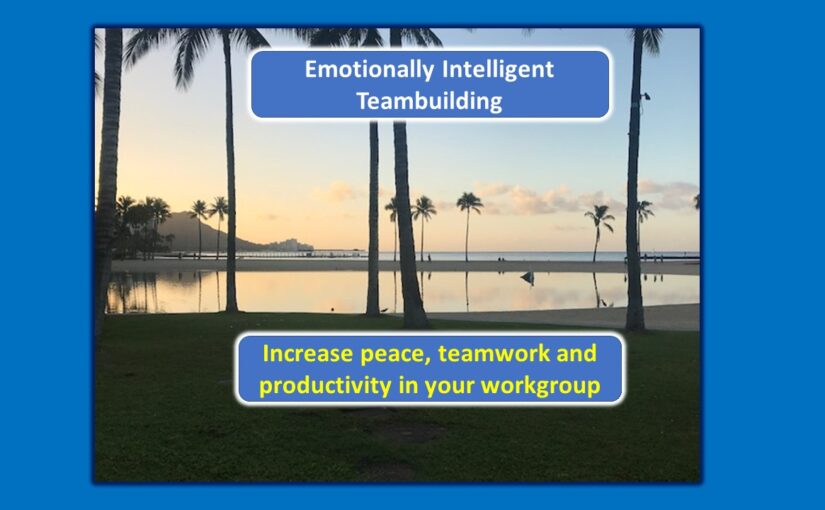By Thomas Davis, DNAP, MAE, CRNA
follow@procrnatom on Twitter
A review of the literature from the business community reveals that having and using emotional intelligence is one of the most important skills of a successful leader, both at work and in the individual’s personal life. Simply stated, emotional intelligence (EI) is the ability to recognize and control emotions in ourselves and in others. Writing in PositivePsychology.com, author Elaine Houston notes that EI is the interface between the emotional and thinking centers in the brain. Having emotional intelligence increases our capability for resilience, motivation, empathy, reasoning, stress management and communication…all desirable traits.
Think back and recall your favorite boss and then ask yourself what made that person stand out compared to others you have worked for over the years. Most likely, your chosen best boss was a person who was easy to talk with and seemed to understand and accept you as a unique person. This person could probably sense your need for professional development and connectedness with the team. In short, your favorite boss was most likely a person who was strong in the area of emotional intelligence.
Why emotional intelligence makes a difference?
Writing in the American Journal of Pharmaceutical Education, authors Romanelli, Cain and Smith reveal that those with strong EI skills are better able to make sound decisions, build and sustain relationships, manage stress, and adjust to change. It is for those reasons that hiring managers across the country are assessing the EI capabilities of applicants during the interview/hiring process in hopes of building a strong and collaborative workgroup.
Recently I had the privilege of teaching a course for an exceptional group of nurse anesthesia students. In a discussion with the program director, I learned that when evaluating students, the selection committee placed greater value on EI than academic credentials during the interview process and that the class of students was selected based on their emotional intelligence skills.
Like the savvy program director, Chief CRNAs across the country are placing value on building teams filled with collaborative workers who are empathetic toward one another and resilient when faced with a challenge…emotionally intelligent teams. Hiring managers have learned that it is better to leave a position open rather than fill it with a “bad apple” who will demoralize others on the team. Gone are the days when positions were filled out of desperation and those who lack EI are finding it more difficult to find a job.
Tips for building an emotionally intelligent team.
Strong, collaborative teams don’t happen by chance, they are developed by leaders who can visualize what they want, develop a plan to achieve it, and stick to the plan without exception. It takes foresight, preparation, and follow-through to achieve the desired results. Let’s get started.
Truth in advertising.
When posting a job opening, include a job description that describes not only the work that is to be done but also the personality traits that you desire. Weave the core values of the organization into the job description and state up front that you are seeking a candidate with a strong history of collaborative teamwork.
Check references.
Typically, applicants submit three references, forms are sent, and prior work is documented. Basically, the form documents that the person held the job and was not fired due to incompetence or moral deficiency. Take the next step by calling the reference and asking questions that would reveal the applicants EI abilities. Ask “what is the applicant’s greatest strength?” and listen for indications that he/she works well with others. Ask whether the applicant has overseen projects or mentored others and what was the outcome. Talking with a reference gives insight into the applicant’s people skills.
At the job interview.
Start your interview with a review of the mission, vision, and values of the organization and clearly let the applicant know that if he/she is not in alignment with the values, this is not their job. Rather than discussing case management and work schedules, use the interview time to learn about how the person interacts with others. Ask leading questions such as:
- Describe your ideal workgroup.
- Which of the organizations core values do you most identify with and why?
- Tell me about a time when you disagreed with your supervisor, how did you handle it?
- Tell me about a time when somebody criticized your work, how did you handle it?
- How would you resolve a dispute between two colleagues?
- What was your greatest success in your last job?
These questions will get the ball rolling…add others that fit your specific job situation. Listen carefully and if you get a superficial stock answer, ask follow-on questions. “Tell me more about” or “what happened next” are ways to reveal how the applicant works with others. Listen for we versus I when the applicant answers questions. Strong team players credit others for participating in success whereas those who lack EI brag endlessly about themselves.
Success.
Strong teams and preferred workplaces don’t happen by accident, rather, they are the product of insightful and effective leadership. Screening applicants and hiring based on emotional intelligence will produce a highly productive and collaborative team that pulls together during stressful times and is a pleasure to supervise.
Tom is an experienced leader, author, and requested speaker. Click here for a video introduction to Tom’s talk topics.
